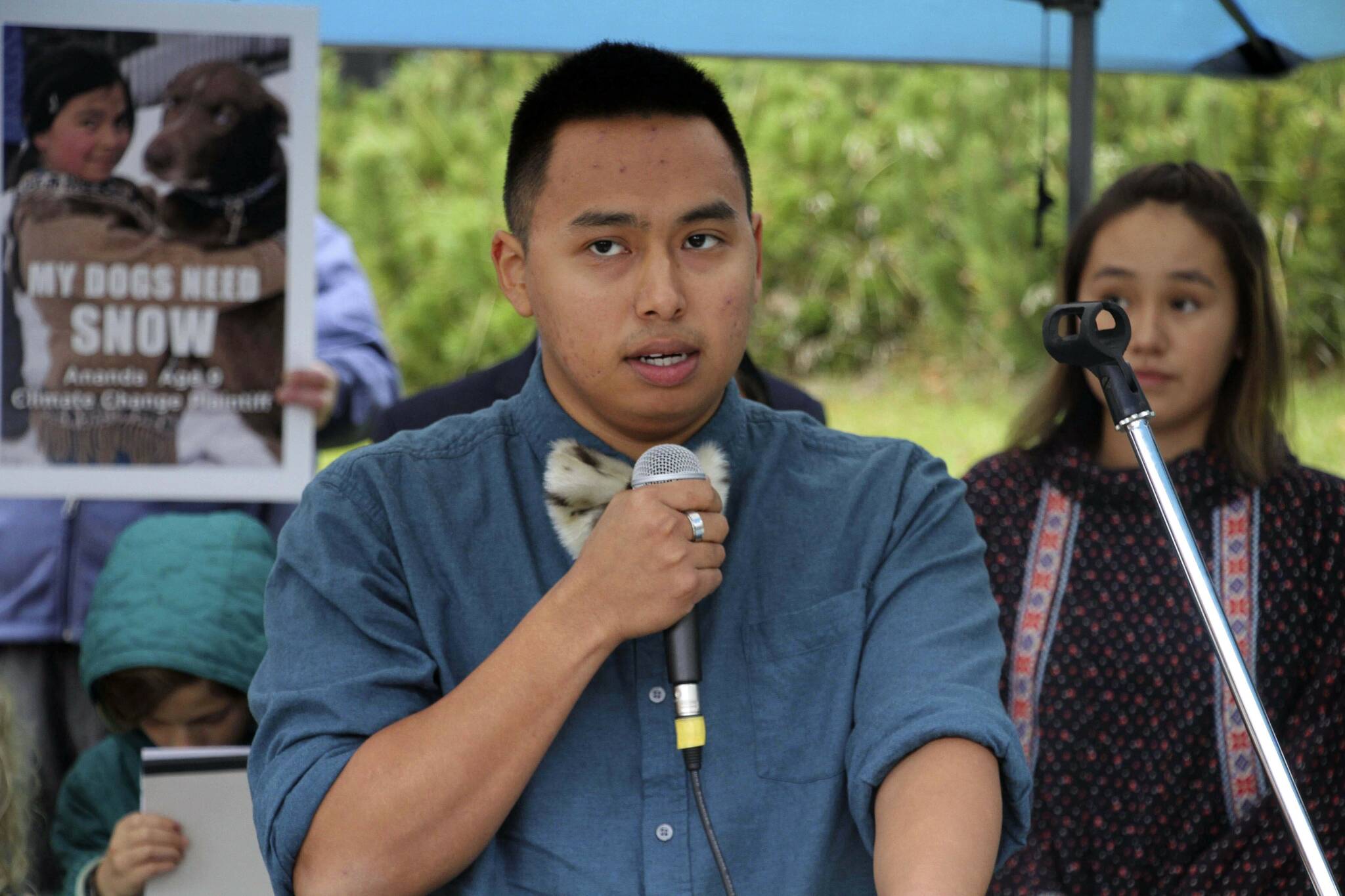By MARK THIESSEN
Associated Press
ANCHORAGE — The Alaska Supreme Court on Friday upheld the dismissal of a lawsuit filed by 16 young Alaskans who claimed long-term effects of climate change will devastate Alaska and interfere with their individual constitutional rights.
The lawsuit against the state of Alaska claimed the state’s legislative and executive branches had not taken steps to lower greenhouse gas emissions. The lower court dismissed the case in 2018, saying these questions were better left to other branches of government.
“The young Alaskans appeal, raising compelling concerns about climate change, resource development, and Alaska’s future. But we conclude that the superior court correctly dismissed their lawsuit,” the Alaska Supreme Court said in its split decision.
During oral arguments before the high court in 2019, the state of Alaska urged the court to affirm the lower court’s rejection of the claim. Assistant Attorney General Anna Jay at the time said the climate change issues raised by the plaintiffs musts be addressed by the political branches of government.
“With today’s decision, a majority of the Alaska Supreme Court betrayed their duty to safeguard the constitutional rights of these youth and serve as a check on the conduct of the state,” Andrew Welle, a lawyer for the young people, said in a statement after the court’s opinion was released.
“The decision not only allows Alaska’s government to continue destroying the conditions necessary for human life, throwing literal and figurative fuel on the fire of an already critical climate crisis, it also makes the court complicit in that conduct, further endangering the health, safety and futures of Alaskan children,” Welle said.
The Alaska Supreme Court acknowledged that it’s not within its jurisdiction to balance the compelling interests involved in managing the state’s resources, a statement released from the office of Republican Gov. Mike Dunleavy said.
“Like the young Alaskans that filed this lawsuit, all of us want a sustainable and healthy future for Alaska. Through its policy decisions over the years, the state has achieved an appropriate and effective balance between resource development and environmental protection,” the statement said.
Summer Sagoonick, the lead plaintiff in the cases, was disappointed in the ruling and said it will affect Alaska Natives who count on wildlife and the land for survival.
“Our irreplaceable peoples, lands, cultures, and ecosystems are infinitely more precious than the short-term profits of the fossil fuel industry, which threatens our state economy and our way of life,” Sagoonick, 20, said in a statement. “It will only be a matter of time until the state’s promotion of fossil fuels irreversibly alters the climate we depend on for our lives and culture.”

